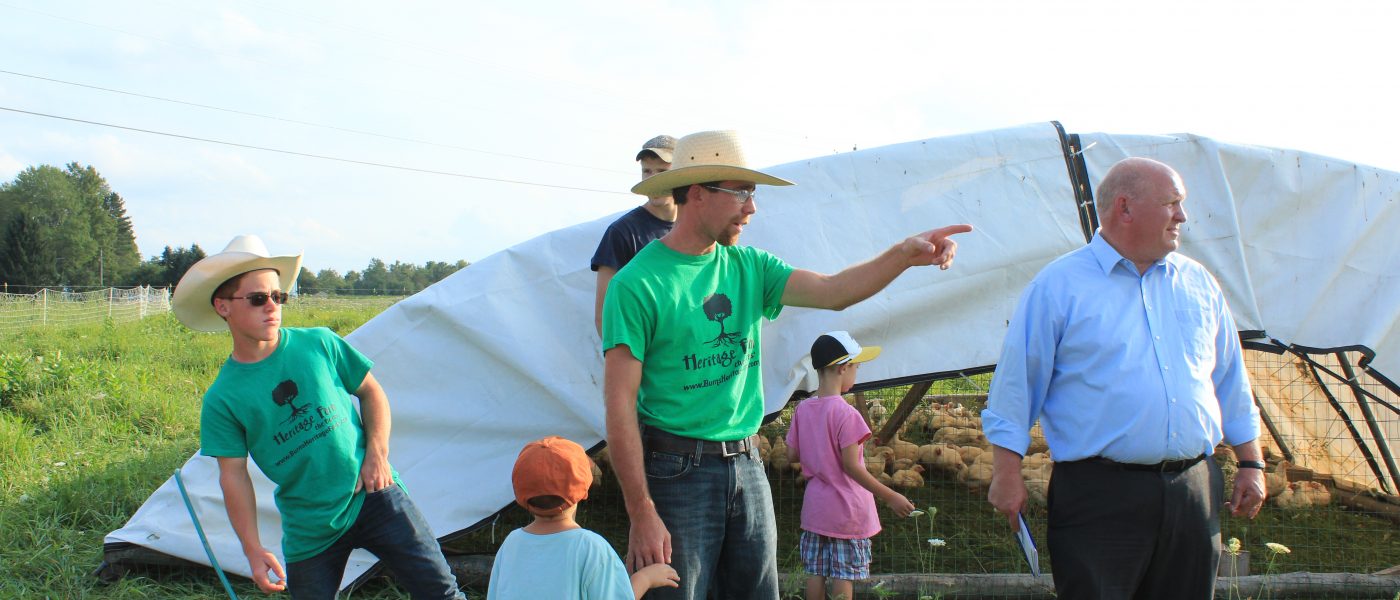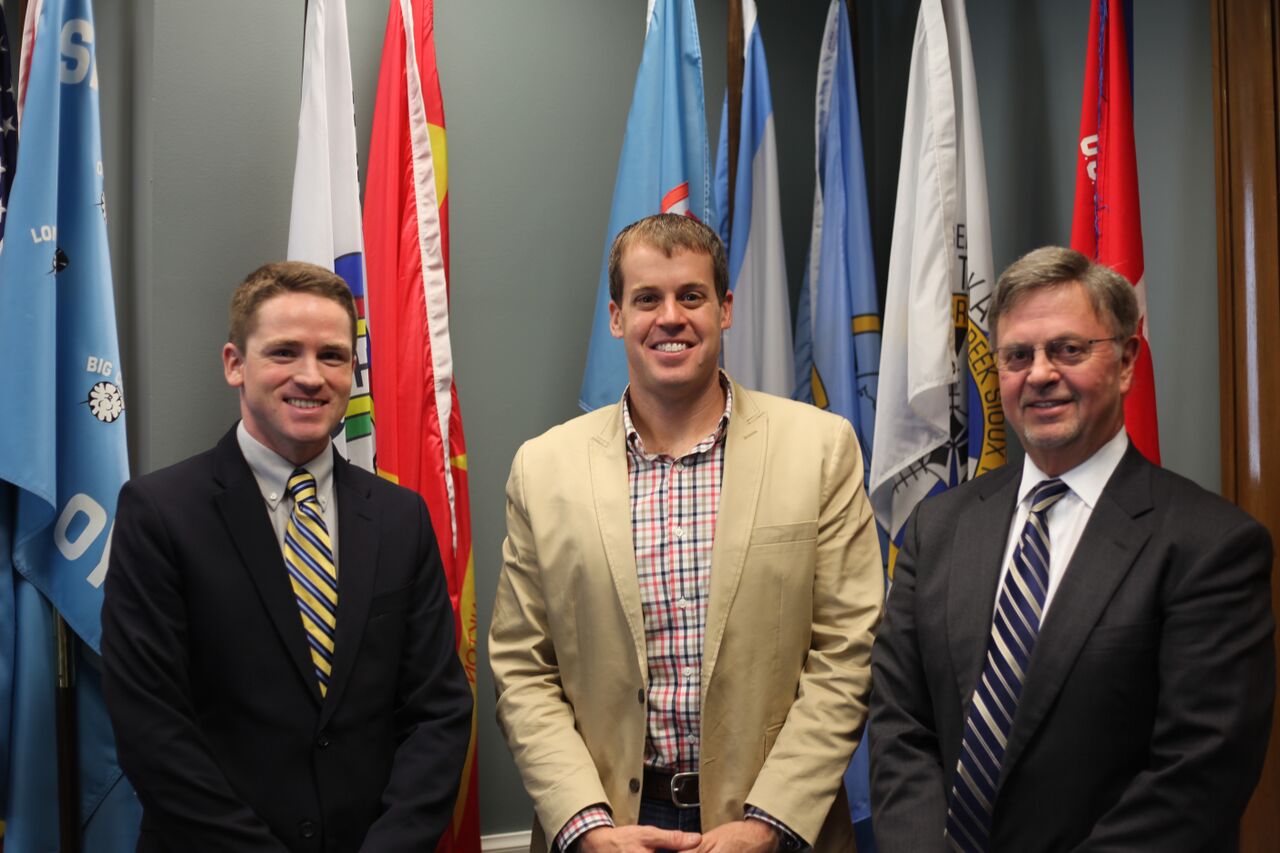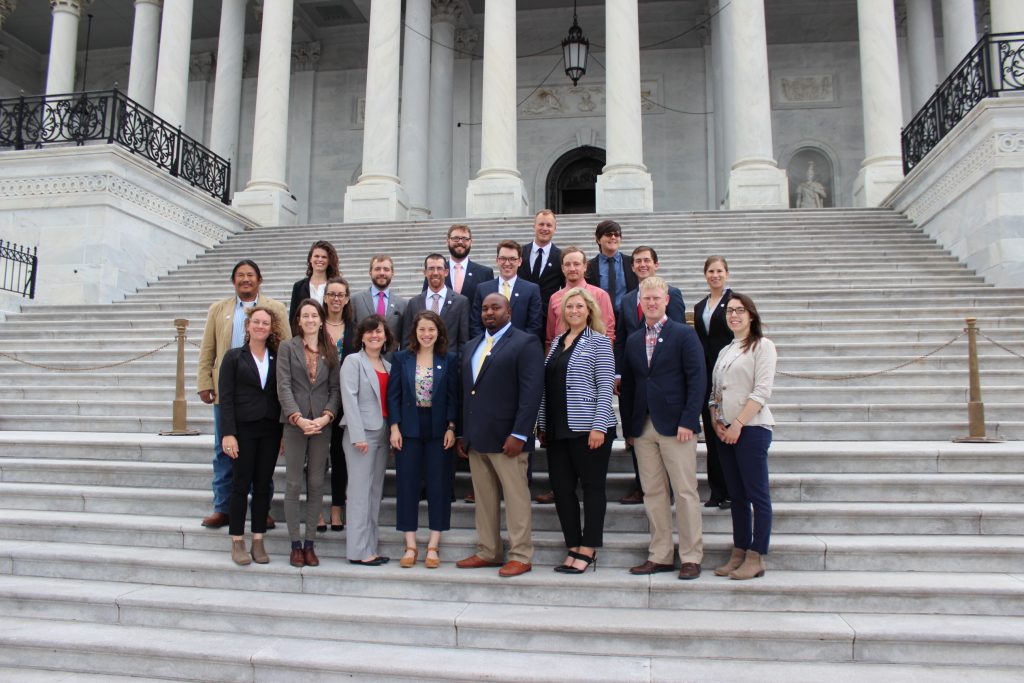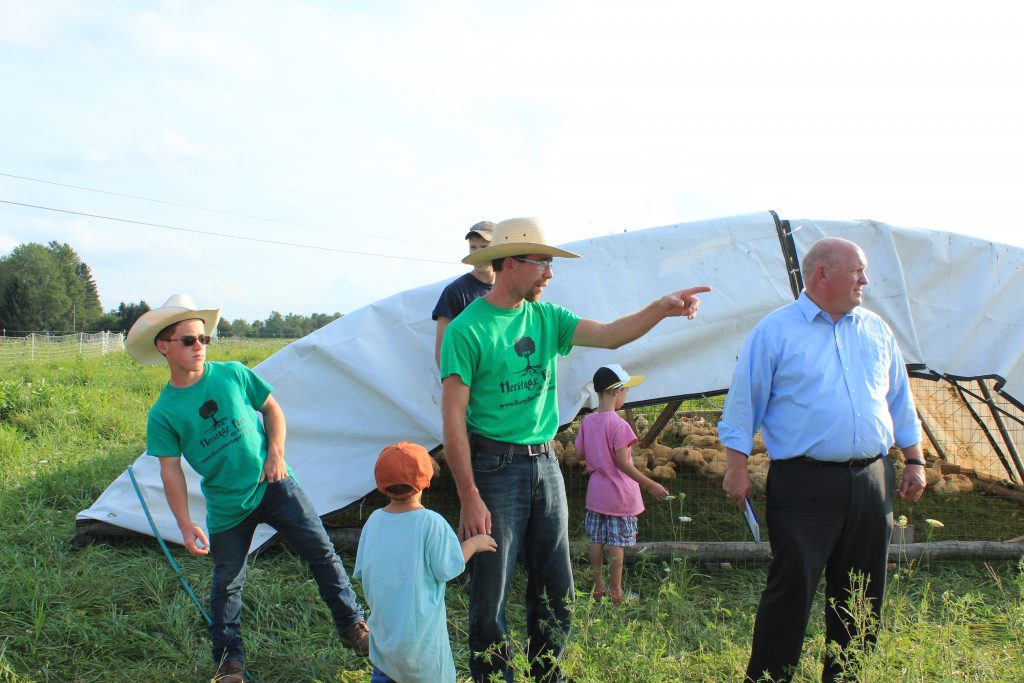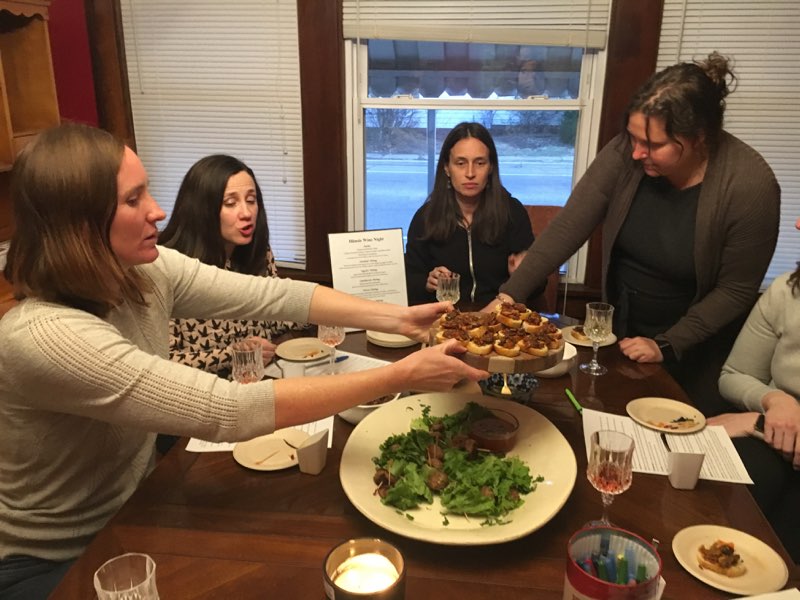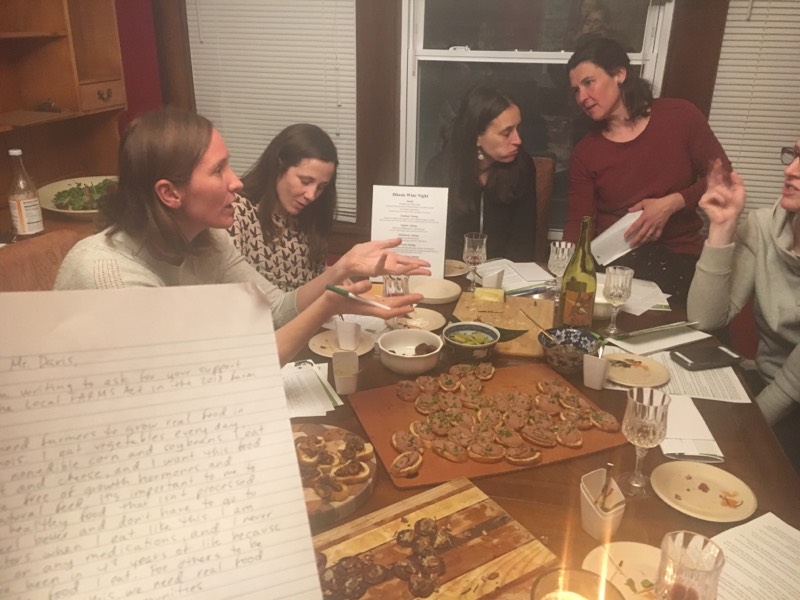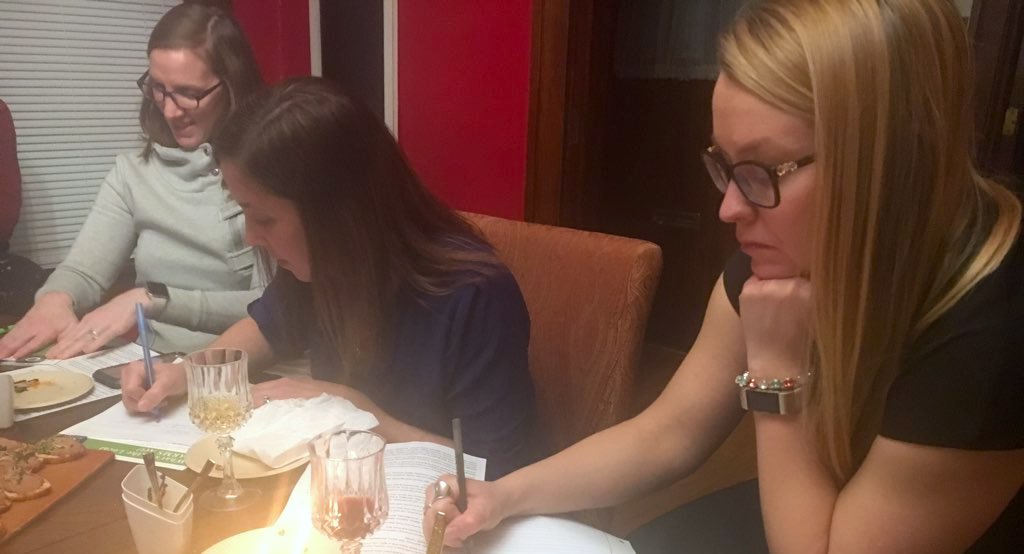The Farm Bill is one of the most influential pieces of legislation for farmers, rural residents and all of us who eat. The 2014 version was an enormous piece of legislation, coming in at 959 pages, it cost the federal government $956.4 billion over a decade. The 2018 Farm Bill will determine the fate of farm subsidies, public nutrition, land stewardship, agricultural research, international food aid, export promotion, and many other agricultural programs.
As Congress works to create a new version of the Farm Bill to be signed this fall, it’s about to get its time in the national spotlight. But its sweeping scope affecting all aspects of our food system means it’s almost always on our minds at Farm Aid and our partner organizations. Below, we’re profiling organizations who received Farm Aid grants for their work leading efforts to advocate for family farmers in the Farm Bill.
Farm Bill Champions
- National Sustainable Agriculture Coalition
- National Young Farmers Coalition
- The Center for Rural Affairs
- Kansas Farmers Union
- Illinois Stewardship Alliance
National Sustainable Agriculture Coalition

Melvin Russell speaking with staff from Senator Thad Cochran’s (R-MS) office. Photo: Reana Kovalcik.
National Sustainable Agriculture Coalition (NSAC) is made up of 120 member organizations (Farm Aid being one!) that work individually and collectively for a better food system. As a group, the Coalition is a strong advocate for federal policies that benefit family farmers, sustainable agriculture, and rural communities. Their ability to translate their members’ grassroots momentum into change has led to dozens of policy victories. They create a campaign for each new Farm Bill, putting forth a policy platform, and bringing farmers to our nation’s capital to meet with their legislators. They hosted two fly-ins, in November of 2017 and March of 2018, during which they welcomed 40 farmers and farm advocates to Washington D.C. to talk about what farmers hope to see in the 2018 Farm Bill. Following are highlights from two of the fly-in’s farmer advocates who came to DC to support NSAC’s efforts to advance programs that support beginning and socially disadvantaged farmers. Melvin Russell: Socially Disadvantaged Producers In March, Melvin drove all the way from his farm in Tchula, Mississippi, to Washington, D.C. He has seen firsthand the impact that the Outreach and Assistance to Socially Disadvantaged and Veteran Farmers and Ranchers Program (AKA the “2501 Program”) can have. Russell works with Mileston Cooperative, which utilizes support from 2501 and the Farm to School Grant Program to give students the opportunity to learn about their food and farming by working with the cooperative’s local farmers. Students learn farming skills, and they also give back through the cooperative’s “5 Mile Meal” program, which provides free, fresh vegetables to local seniors. “I initiated the program because there were a lot of seniors in the area that had poor health and wanted fresh veggies but had no access,” said Russell. “In some places, everything is at your fingertips. In the country, your closest supermarket or store maybe 15 or 20 miles from your residence. You don’t get to walk out the door and walk two blocks for something to eat.” Russell, a veteran, and the Mileston Cooperative work with veterans in their community; members of the cooperative lease one-acre plots to local veterans and give them the skills and practice to run their own operations in the future. “The 2501 Program has created a marriage between farmers, veterans, schools, and community. It helps us all to thrive together,” said Russell. Aaron Johnson: Beginning Farmers and Ranchers Aaron serves on the leadership committee of Dakota Rural Action (DRA) and is also the owner of Johnson Farms, an organic row crop and cattle operation in Madison, South Dakota. At the beginning of his farm career, Aaron participated in DRA’s “Farm Beginnings” program, which is funded in part by USDA’s Beginning Farmer and Rancher Development Program (BFRDP).* Beginning farmer Aaron Johnson, left, and NSAC’s Deputy Policy Director Juli Obudzinski meet with Senator Thune’s staffers. Photo: NSAC. “I grew up on a farm, but once I had my own operation I realized there was a lot I needed to learn,” said Aaron. “My wife and I learned a lot from the Farm Beginnings course. We got help with everything from financial planning to learning how to incorporate family life into farm life – and best of all we got to meet and form connections with other beginning farmers.” When meeting with his legislators in November, Aaron highlighted the need for support for programs like BFRDP, as well as for addressing other beginning farmer concerns, such as increased access to credit and affordable farmland. In South Dakota, farmland can cost as much as $6,000 an acre, which poses a serious barrier to aspiring farmers. The average age of American producers is nearing 60, so Aaron stressed to legislators the importance of federal policy in bringing in and training the next generation of farmers and ranchers. For more information on beginning farmer and rancher programs and policies, check out NSAC’s farm bill campaign page, blog, and their latest publications. * In April, the House Agriculture Committee released a draft Farm Bill, which will be deliberated over in May. NSAC wrote that this bill: The National Young Farmers Coalition (NYFC) is a strong policy advocate for young farmers around the country. Their 2017 funding from Farm Aid went toward “Creating a National Strategy for the Next Generation of American Farmers in the 2018 Farm bill and Beyond.” They brought 12 young farmers to D.C. for a Fly-In to urge Congress to vote for a Farm Bill that invests in their future; they testified before the full U.S. Senate Committee on Agriculture, Nutrition, & Forestry about the upcoming Farm Bill; and they worked directly with members of Congress on the Young and Beginning Farmers Act and the Beginning Farmer and Rancher Opportunity Act. Click here to read about the Young Farmer Agenda “In 2017 NYFC undertook our second National Young Farmer Survey in order to understand the most pressing challenges and clearest opportunities for young farmers. Thanks to the support of Farm Aid, NYFC was able to survey more than 3,500 current, aspiring and former farmers under the age of 40 across the country. Farmers from all 50 states responded to the survey, with equal distribution from all geographic regions. On completion of the survey, we released the findings of the survey in our report Building a Future with Farmers II, which was covered in a front-page exclusive in the Washington Post, and subsequently in hundreds of media outlets around the country.” Considering their findings, NYFC is now calling on lawmakers to enact the Young Farmer Agenda, a slate of policy recommendations for the Farm Bill as well as local and state legislation. The Agenda includes measures to improve land access and affordability; help young farmers manage student debt; increase the skilled agricultural workforce; enable farmers to invest in on-farm conservation; improve credit, savings, and risk management opportunities; and address racial inequity among farmers. To ensure that the Young Farmer Agenda translates into positive legislative change for young farmers, NYFC brought young farmers face to face with their elected officials to share their stories. During the August Congressional recess last year, NYFC held 15 in-district roundtables targeting House and Senate agriculture committee members. NYFC has found these in-person panel discussions to be a highly effective strategy for recruiting Congressional champions for young farmer issues. Members of the Indiana Young Farmers Coalition gather at Nightfall Farm for a Young Farmer Roundtable with Senator Donnelly’s staff. Photo: Nightfall Farm The Center for Rural Affairs, one of our regional partners out of Lyons, Nebraska, is featured in our Farmer Resource Network Guide for Starting a Farm. They are an important voice advocating for beginning farmers in the Farm Bill. In 2017, they organized their members and followers around “policy opportunities to support beginning farmers in the next Farm Bill.” They also co-sponsored farmer listening sessions with the Iowa Farmers Union to hear what hurdles beginning farmers in Iowa are up against. Click here to read how CRA connects beginning farmers with their legislators “Working with and training beginning farmers on advocacy presents unique challenges. First, beginning farmers are often less familiar with the process of trying to influence legislators, and generally have less experience than many older farmers in advocacy work. Another challenge stems from the fact that many beginning farmers must start “alternative” farming operations because the cost barriers for conventional or commodity production are so high. But government programs are often less available for these farmers, which can sometimes makes beginning farmers feel disinclined toward engaging in policy work. Finally, being a beginning farmer is simply exhausting – many have very little bandwidth to also take on advocacy actions. Although these patterns are not true for every individual farmer, beginning or established, they are trends that we have noticed in our work in the Midwest. We were able to arrange for beginning farmers from Iowa and Kansas to meet and speak with their legislators on several occasions. Our staff also conducted several relationship-building meetings with these same offices. During those meetings, we described the challenges that beginning farmers face in getting started, and we discussed opportunities in the upcoming farm bill to support beginning farmers. Ranae Dietzel meeting Agriculture Secretary Sonny Perdue at the Beginning farmer luncheon in Des Moines in August. Photo: Darin Leach for USDA. We are proud to have been instrumental in the inclusion of diversified beginning farmer voices at an August roundtable with several decision-makers. The meeting included Senator Joni Ernst (R-IA), Representative David Young (R-IA), Agriculture Secretary Sonny Perdue, Iowa’s Secretary of Agriculture Bill Northey, and other state officials. The Center for Rural Affairs was able to connect the organizers of the event with two beginning farmers, Kate Edwards and Ranae Dietzel, both of whom are excellent spokespeople for the challenges and opportunities that beginning farmers face. Both are familiar with and/or have participated with several USDA programs and were able to speak to those programs’ utility on their farms. They were also able to speak to the broader issues that beginning farmers face in accessing land, capital, and markets. It was a valuable opportunity to share these important points with several decision-makers at once.” Participants of the beginning farmer luncheon Ranae Dietzel is in a flowered shirt next to Sonny Perdue, and Kate Edwards is next to her. Photo: Darin Leach for USDA. To read about a recent fly-in that CRA hosted about the Farm Bill, click here. KFU members Kami VanCampen, Tom Giessel, Donn Teske, Rosanna Bauman, and Olivia Taylor-Puckett meet with Senator Pat Roberts’ staff during Hill visits in September 2017. The Kansas Farmers Union has been a Farm Aid grantee and close working partner since 2011. They represent the interests of the farmers of Kansas and are one of the 33 independent divisions of the National Farmers Union. In 2017, they focused their funding from Farm Aid on a project titled “Kansas’s Responsibility in Addressing the 2017 Farm Crisis.” Along with taking farmer crisis calls, creating Farm Crisis programming at two conventions, facilitating numerous KFU County Meetings, and educating congressional aides about the Ag Mediation program, the team at KFU has also been busy working on the upcoming Farm Bill. Click here to read about their progress on the Farm Bill “In September, KFU sent members to Washington, D.C., as part of the National Farmers Union Fall Fly-In. The nine Kansas attendees included a cattle rancher, a crop farmer, a poultry plant owner and diversified farmer, KFU staff, Midwest Regional Agency insurance agents, and a farmers market manager. The wide range of professions displayed the dynamic and diverse nature of the agricultural landscape in Kansas. Tom Giessel, the Pawnee County Farmers Union president who raises wheat, corn, milo, and alfalfa near Larned, was the group’s Farm Crisis response champion. After a long hiatus from attending Fly-Ins, Giessel felt the upcoming Farm Bill and depressed farm prices necessitated his return to Capitol Hill to share the impacts of legislation on farmers in the fields. Read more about the Fly-In and its impact here. Kansas Farmers Union also held four Farm Bill 2018 Listening Sessions across the state in early August. Nearly 200 farmers attended the sessions, which featured National Farmers Union governmental relations staff, who will be deeply involved in the development of the next Farm Bill. Although the focus of each session varied based on the focus of agricultural production in that region, one consistent position of attendees was: “We need a new farm bill with teeth that has a strong safety net for times like these.” To read a thorough write up of the fourth session, click here. About 30 local farmers gathered at the Larned Knights of Columbus Aug. 4 to provide input on the 2018 Farm Bill. Local farmer Tom Giessel points to a June 5, 1930, Tiller and Toiler encouraging farmers to attend local Farm Bill listening sessions. Photo: Mike Gilmore Since 1974, Illinois Stewardship Alliance has advocated for a more just and sustainable local food system at the state and federal level by pushing their local politicians to prioritize Illinois farmers. They have had remarkable success: since 2009 they have ushered 14 bills through their state legislature aimed at lowering the barriers faced by local food producers. Click here to read about their "Dishing on the Farm Bill" parties Now, the Alliance members are harnessing their power as engaged citizens to make local food and sustainable agriculture a national priority in the 2018 federal Farm Bill. Three members of Congress from Illinois serve on the U.S. House Agriculture Committee charged with writing the 2018 Farm Bill. “There are local food supporters across the country but few have three representatives writing the Farm Bill. Our members have a unique opportunity to weigh in,” Executive Director Liz Moran Stelk says. “At the end of the day members of Congress are accountable to their constituents.” Alliance members across Illinois are organizing “Dishing on the Farm Bill” parties where members invite their friends to a potluck style dinner to learn about the giant piece of legislation. “We wanted to make it as easy as possible for folks to share stories about why good, local food matters to them, learn about the Farm Bill, and to contact their Congressperson about it.” Party hosts can download ISA’s party planning kit, complete with invitations, a draft agenda and tips for writing to your legislator. Alliance members hosted Dishing parties which culminated in party goers mailing handwritten letters asking their representative to support the Local FARMS Act. Here is a letter Jennifer Snopko of Springfield, Illinois, wrote to her Congressman Rodney Davis (R-13) at a Dishing on the Farm Bill party in March: Dear Rodney Davis, As a young girl, I picked wildflowers and sweetcorn. I gardened, played, ran in fields, and had dogs. I had a wonderful childhood. One year, everything changed. “New” corn + soybeans were developed. It wasn’t the usual color. Our father asked us not to touch it. When he “sprayed” the fields, everyone had to go inside. The dogs wanted to lick the sweet, white foam off the corner of the fields. They were also brought inside. Suddenly, everything was different. So suddenly you could feel the stress in my father’s muscled forearms, in my mother’s review of the grocery bill and in the color of the soil. This month, my father, a man who has never smoked a cigarette in his life, was diagnosed with COPD. The doctors blame farming–dust … and herbicides. We lost that farm. We couldn’t keep up. We still can’t keep up – none of us. Eventually it breaks. Super weeds win, simplicity of a business plan breaks. Variety, wholesome nutritious foods from healthy soil will determine the health of a community. Please support the Local Farms Act. We want more jobs, not less. We want preventative health, not “after thought” patches. Bring back the heartbeat of Illinois. Support Local Farms. Support healthy citizens who don’t have to suffer. – Jennifer Snopko of Springfield, Illinois Farm Aid partners with many grass-roots organizations across the U.S. that are doing hard work of making sure farmers are heard in the national conversation surrounding this Farm Bill. Click here to learn about what our other grantees are doing.
Click here to learn how Aaron and Melvin advocated for important Farm Bill programs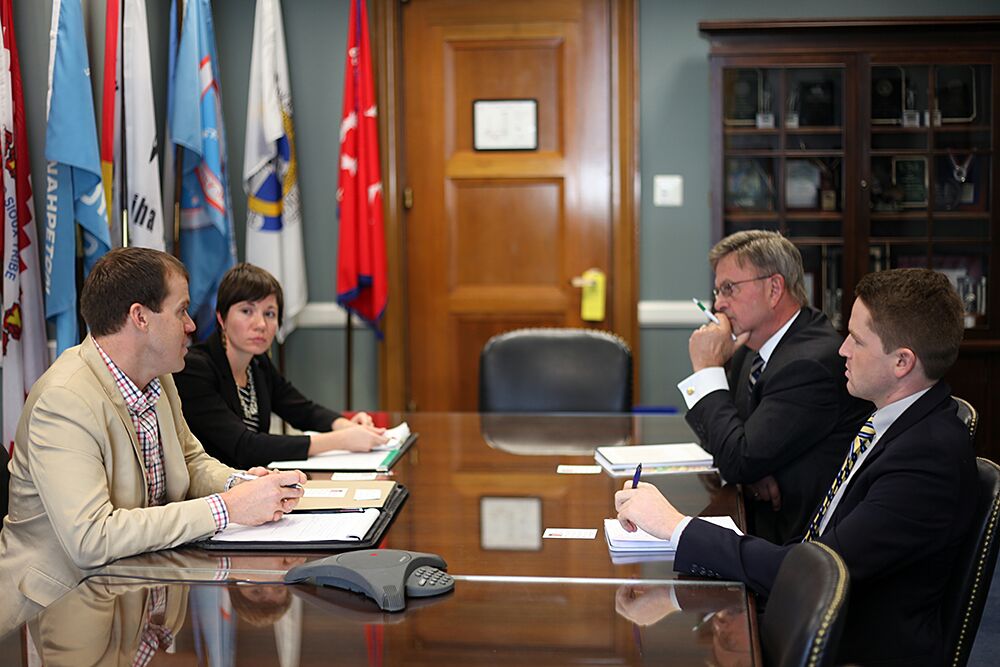
National Young Farmers Coalition
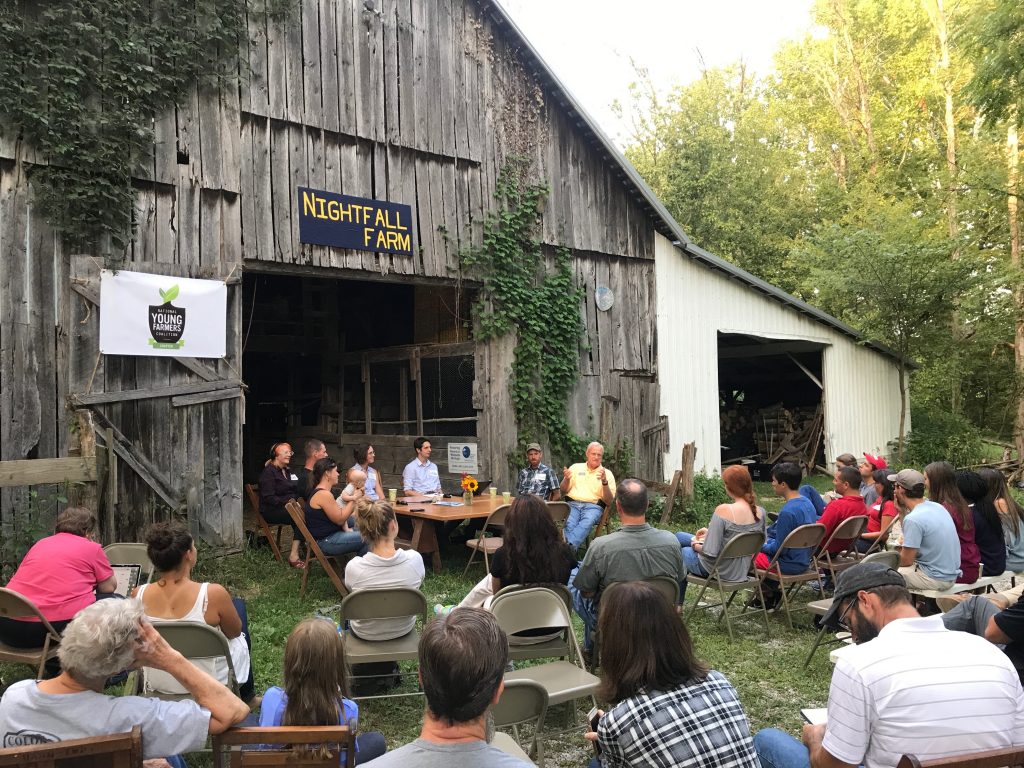
By the numbers:
The Center for Rural Affairs
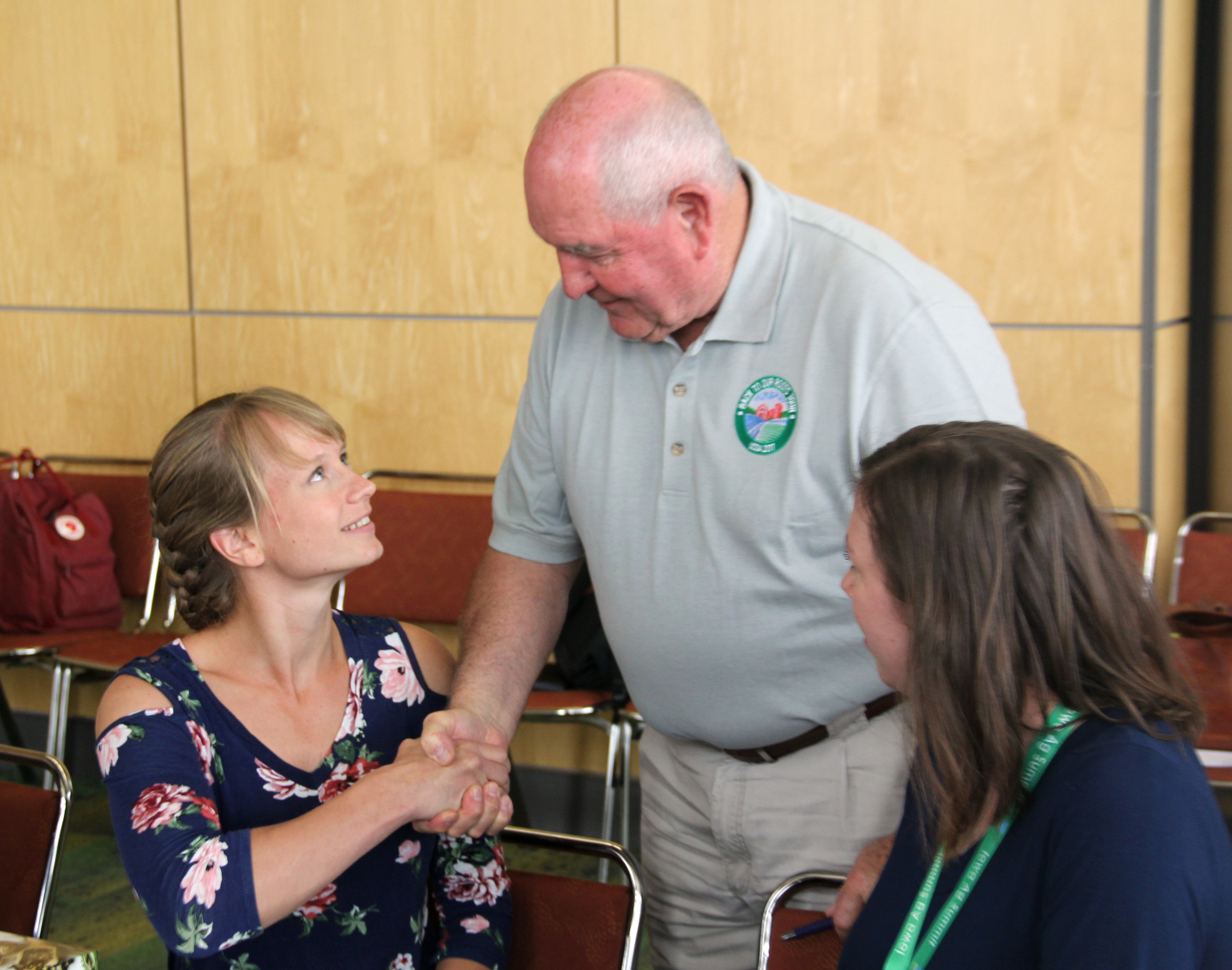
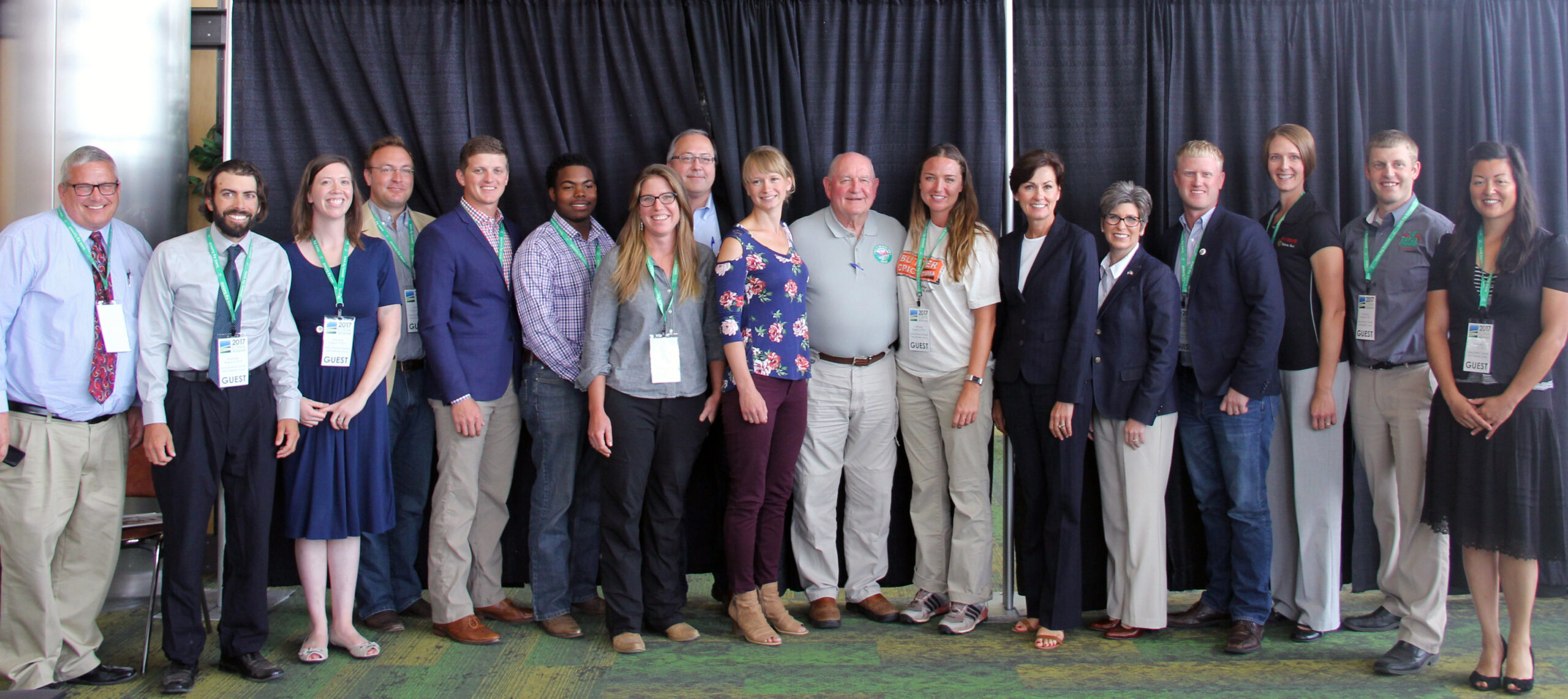
Kansas Farmers Union
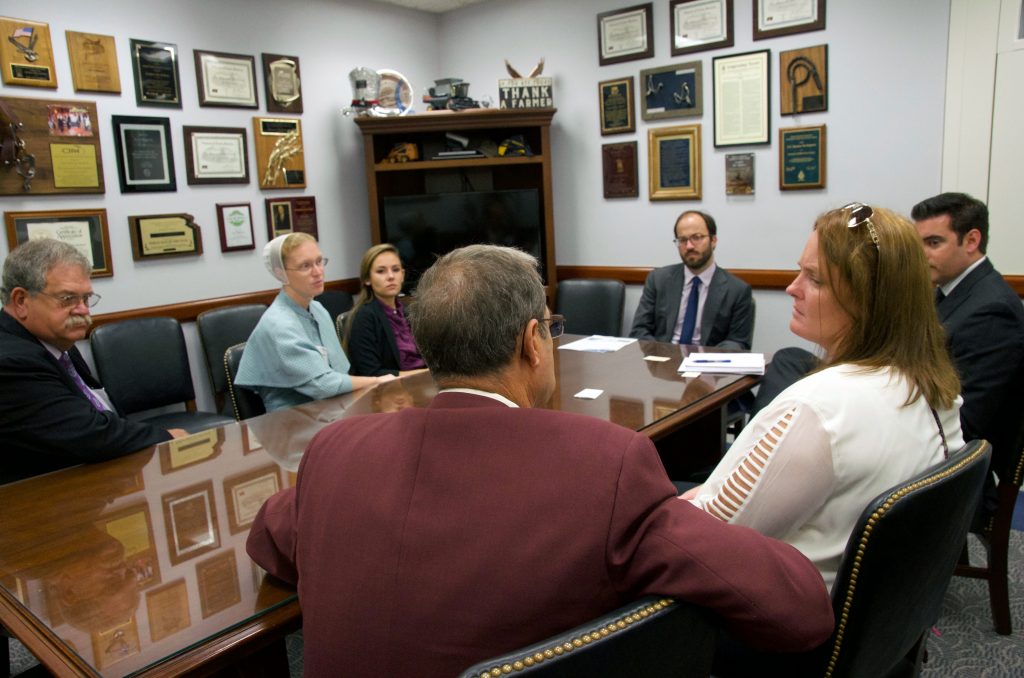
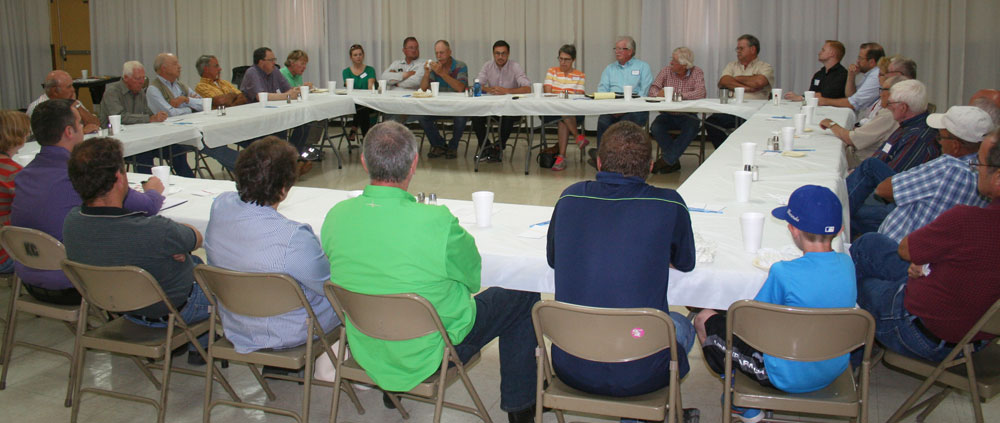
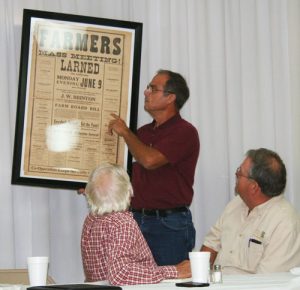
By the numbers:
Illinois Stewardship Alliance
